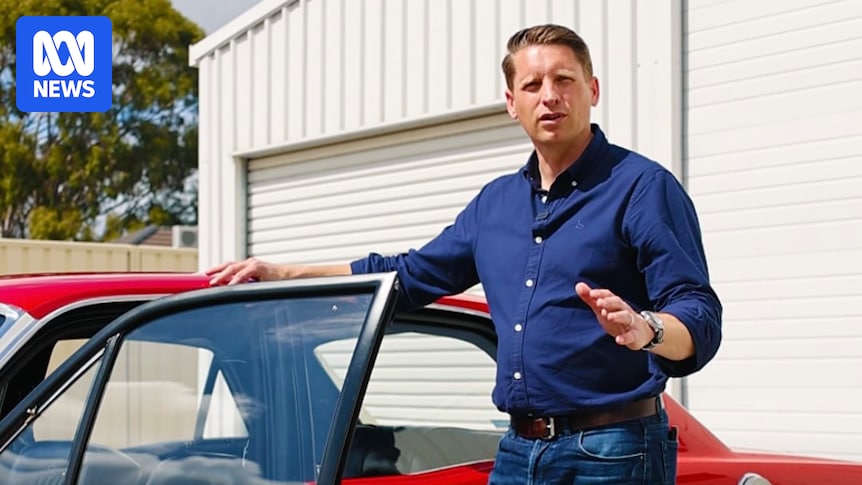
Andrew Hastie, a prominent figure in Australia’s Liberal Party, has launched a scathing attack on what he describes as “nameless cowards” and “muppets” within his party. This comes after some colleagues questioned a social media post in which Hastie lamented the decline of Australia’s car manufacturing industry.
The aspiring Liberal leader, who has expressed his ambition to lead the party, took to Instagram on Monday to voice his concerns over the loss of domestic car production. “We used to make complex things in this country,” Hastie stated, criticizing both the Liberal and Labor parties for allowing the industry to vanish. “It’s time to put Australians first,” he added, echoing the “America First” slogan popularized by former U.S. President Donald Trump.
Background on Australia’s Car Manufacturing Decline
The decline of Australia’s car industry has been a point of contention for years. When Holden and Ford ceased production over a decade ago, the then-Coalition government chose not to bail out the companies, despite years of substantial subsidies from various administrations. This decision has been a source of debate, with opinions divided on whether government intervention could have saved the industry.
Hastie’s recent comments are part of a broader pattern of outspoken criticism on various policy issues, including net zero emissions, migration, energy, and domestic manufacturing. His forthrightness has drawn both support and criticism from within his party.
Response from Liberal Colleagues
After Hastie’s Instagram post, anonymous Liberal colleagues questioned the funding of the “well-produced” video accompanying his message. They suggested that the production quality was inconsistent with the modest salaries of parliamentarians.
In response, Hastie once again took to social media, writing, “Nameless cowards briefing in the paper. It was filmed by competent, patriotic Gen Z staffers you muppets.”
Support and Criticism from Within the Party
The controversy surrounding Hastie’s comments is the latest in a series of internal disputes within the Liberal Party. Just two weeks prior, the Coalition was embroiled in conflict over remarks made by Jacinta Nampijinpa Price, which resulted in her removal from the frontbench.
Senator Price expressed her support for Hastie, stating, “The Liberal MPs who disagree with Andrew Hastie’s views should have the courage to own their comments instead of hiding behind anonymity.” She further criticized the “factional warlords” for their efforts to undermine important national debates.
Similarly, Nationals Senator Matt Canavan praised Hastie for “calling out this BS,” highlighting the ongoing tensions within the party.
Calls for Unity Amidst Internal Strife
In the wake of Senator Nampijinpa Price’s dismissal and the subsequent turmoil, Liberal MP Aaron Violi urged his colleagues to maintain unity. Speaking on ABC Afternoon Briefing, Violi emphasized the importance of private, face-to-face conversations among party members.
“What I would say as a general comment is all conversations between colleagues should be face to face and private. The Australian public wants us to be a strong, united opposition holding this bad government to account,” Violi stated.
Violi acknowledged the “soul searching” process following the party’s devastating electoral defeat on May 3rd, urging colleagues to engage in constructive dialogue rather than public disputes.
Implications and Future Prospects
The ongoing discord within the Liberal Party raises questions about its ability to present a cohesive front as an effective opposition. Hastie’s comments have sparked a broader conversation about the direction of the party and its stance on key policy issues.
As the party navigates these internal challenges, the debate over Australia’s manufacturing future remains a critical issue. Hastie’s call to prioritize domestic industry resonates with a segment of the electorate concerned about economic sovereignty and job creation.
Looking ahead, it remains to be seen whether the Liberal Party can reconcile its internal differences and articulate a clear vision for Australia’s future. The outcome of this internal debate could significantly impact the party’s prospects in future elections.







